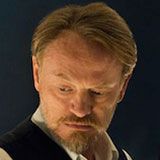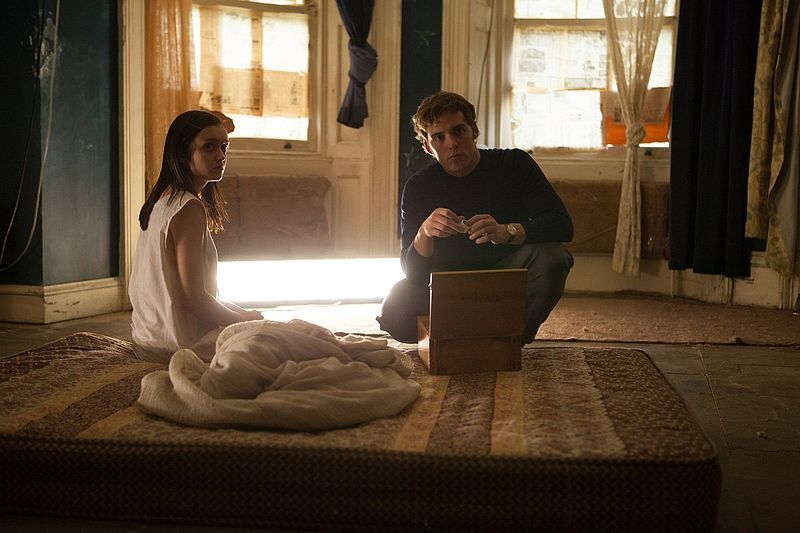Maybe it’s because so many iconic horror films made with a mature, still-contemporary cinematic edge were crafted in the 1970s – The Exorcist, The Amityville Horror, The Omen, Carrie – but it seems that supernatural thrillers set in the era of the Me Generation come ready-built with an extra atmosphere of eeriness. Case in point: filmmaker James Wan’s authentically chilling 2013 sleeper hit The Conjuring.
The Quiet Ones, from writer/director John Pogue (Quarantine 2: Terminal), benefits from a similar era-specific creepiness, but even when that particular plus is factored in among additional advantages, including a sharp cast and a clever directorial style, the film remains somehow less than the sum of its parts.
It’s the latest release from Hammer Films, the revered purveyor of vintage British horror, which smartly trades on its lineage by setting the story in the United Kingdom in an early ‘70s epoch that coincides with the zenith of the studio’s original output. Like The Conjuring, The Quiet Ones also looks to a notorious true-life parapsychological incident for inspiration: the curious “Philip Experiment,” a 1972 attempt by Canadian poltergeist researchers to create a ghost, complete with a rich, detailed backstory; by focusing intense collective concentration on the fictional spirit, the investigators hoped to bring it to ectoplasmic life. The researchers did report and document apparent contact from their creation “Philip,” but suspicions that the experiment was a hoax still linger.
The Quiet Ones leaps off from that premise – and markets itself with a “based on true events” pitch line – but after several screenwriters took their turns at the story, it ultimately veers far afield: University professor Joseph Coupland (played with a perfect blend intellectual arrogance and charismatic follow-me guruism by Jared Harris of Mad Men), brilliant but bristling at the restrictive old-school attitudes toward his groundbreaking case study, removes his star subject Jane Harper (Bates Motel’s Olivia Cooke) to a deserted, dilapidated country estate to be studied by his collegiate team, including a randy post-Mod couple (Erin Richards and Rory Fleck-Byrne) and soft-spoken cameraman Brian (Sam Clafin of The Hunger Games).
Jane, it seems, has long been possessed and tormented by a seemingly malicious spirit named Evey, but Coupland is convinced the “ghost” is just a manifestation of Jane’s psyche. He intends to release her from the poltergeist by freeing her mind, although by keeping her locked in an observation room she is as much a prisoner of her presumed savior and she is of Evey. “If we can cure one patient, we cure all mankind,” Coupland promises wide-eyed Brian (who quickly finds himself drawn to Jane), establishing his Frankensteinian bona fides in the name, of course, of science.
Pogue manages to freshen the increasingly shopworn horror trope of “found footage” – through the eye of Brian’s camera – with a relatively deft back and forth between more conventional narrative approach, and that, combined with the lushly recreated ‘70s aesthetic, both in cinematography and production design, provides the film’s most successful element: mood and atmosphere.
Similarly, the lead performers who inhabit the characters in their somewhat hermetically sealed environs generally deliver competent performances: In particular Cooke, looking somewhat like a hybrid of Christina Ricci and Chloe Grace Moretz concocted in a Tim Burton lab experiment, fares well shifting gears effectively between the vulnerable, victimized Jane and the menacing, malevolent Evey; Richards gives her otherwise=underdeveloped role real pop, as smartly sex-kittenish as they come; and Harris utterly dominates the proceedings with his intuitive ability to shift Coupland from sympathetic to suspicion on a dime. Claflin disappoints a bit, as he lands the wide-eyed naïf aspect of Brian, but lacks an extra dimension to turn the character into a true protagonist/audience surrogate. As a result, we never feel especially invested in the character or his fate.
But while intriguing ambiance and mostly good acting contribute to a film that remains watchable throughout its run time, The Quiet Ones stumbles both in its storytelling and in the way it delivers scares. The tale unfolds in a way that genuinely feels like it was written by multiple hands, lacking coherency and straightforward direction. Rather than red herrings and false leads, the film’s tangential explorations ultimately play more like vestiges of previous drafts that were never quite realized, and when the plot’s bigger twists are ultimately unveiled (and they are somewhat cleverly conceived, if ham-fistedly delivered), the audience can’t help but wonder what the point was of some of those other blind alleys.
The juiciness of the “Philip Experiment” premise isn’t given adequate exploration, and the story the film concocts in its place isn’t especially compelling – and worse, it lacks in substantial chills. There are plenty of easy “BOO!”-type scares – Pogue has a decent eye for ratcheting up some relatively easy surprise moments – but a palpable sense of genuine suspense and dread, not to mention investment, surrounding Jane’s plight never really emerges. Despite matching its ‘70s antecedents in atmosphere, The Quiet Ones simply needed to have a lot more to say.
The Quiet Ones opens Friday nationwide.



